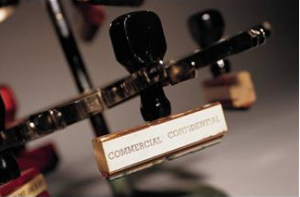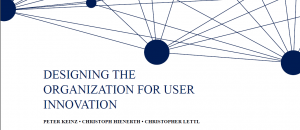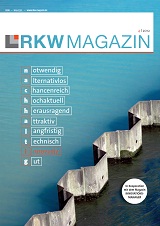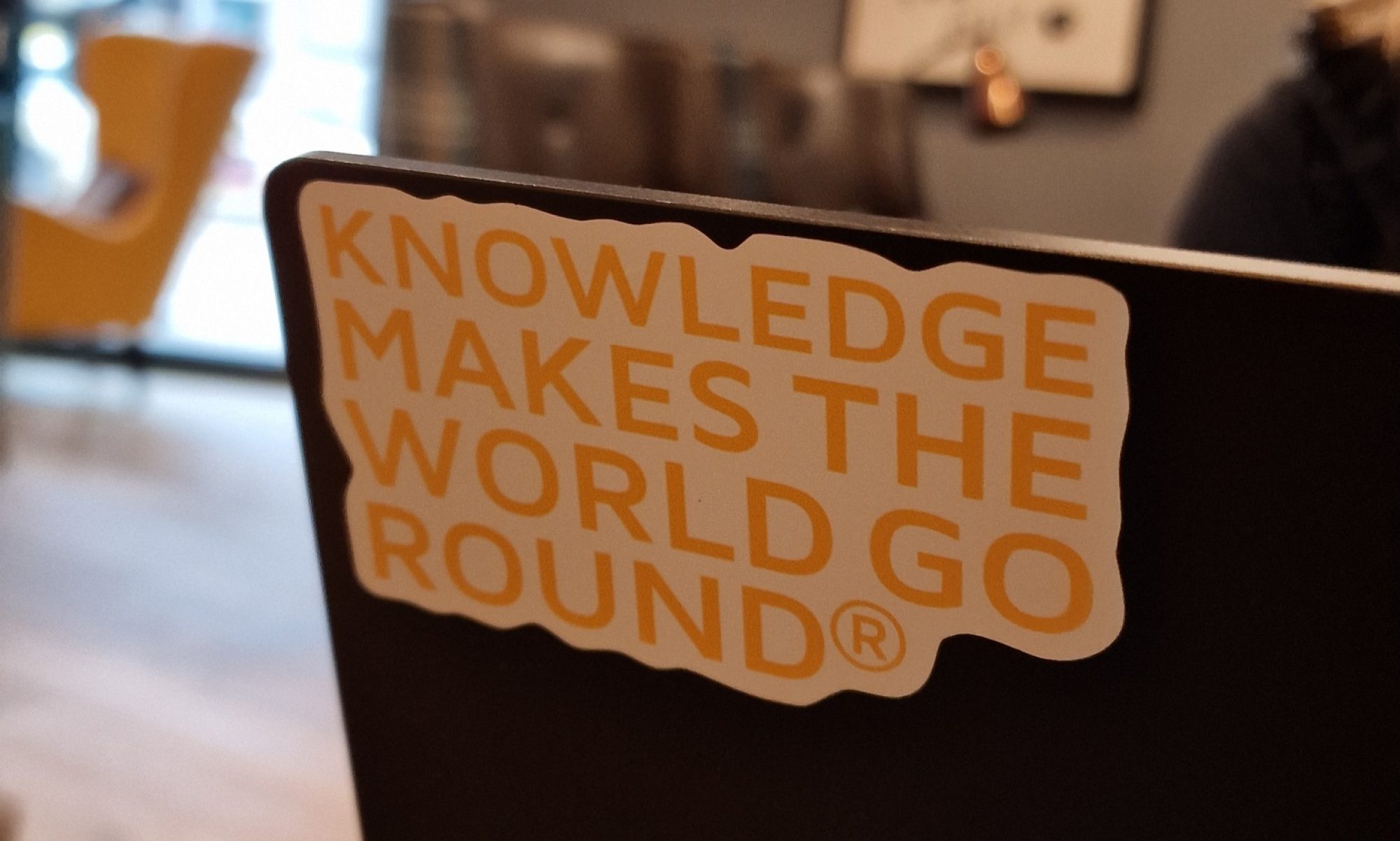Immer wieder Crowdfunding
 In dem Artikel Crowdfunding: Erst kleckern, dann klotzen (FAZ vom 19.01.2013) werden (wieder einmal) die aktuellen Entwicklungen beim Thema Crowdfunding beschrieben und festgestellt, dass wir in Deutschland noch weit hinter den Möglichkeiten zurück sind. Die neuen Finanzierungsmöglichkeiten von Ideen ist eine Konsequenz der Entgrenzung des Innovationsprozesses. Die traditionellen Finanzierungsarten von Ideen/Innovationen passen eher zu einem geschlossenen Innovationsprozess (Closed Innovation). Open Innovation oder sogar User Innovation benötigt ganz andere Strukturen der Finanzierung. Was zur Zeit noch eine Nische darstellt, könnte in naher Zukunft die Ideen- bzw. Innovationsfinanzierung in Deutschland verändern. Siehe dazu auch Freund, R. (2010): How to Overcome the Barriers between Economy and Sociology with Open Inovation, Open Evaluation and Crowdfunding?
In dem Artikel Crowdfunding: Erst kleckern, dann klotzen (FAZ vom 19.01.2013) werden (wieder einmal) die aktuellen Entwicklungen beim Thema Crowdfunding beschrieben und festgestellt, dass wir in Deutschland noch weit hinter den Möglichkeiten zurück sind. Die neuen Finanzierungsmöglichkeiten von Ideen ist eine Konsequenz der Entgrenzung des Innovationsprozesses. Die traditionellen Finanzierungsarten von Ideen/Innovationen passen eher zu einem geschlossenen Innovationsprozess (Closed Innovation). Open Innovation oder sogar User Innovation benötigt ganz andere Strukturen der Finanzierung. Was zur Zeit noch eine Nische darstellt, könnte in naher Zukunft die Ideen- bzw. Innovationsfinanzierung in Deutschland verändern. Siehe dazu auch Freund, R. (2010): How to Overcome the Barriers between Economy and Sociology with Open Inovation, Open Evaluation and Crowdfunding?
Gesellschaft für Informatik e.V. (2012): Memorandum zur Öffnung von Staat und Verwaltung (Open Government)
 Das Positionspapier Gesellschaft für Informatik e.V. (2012): Memorandum zur Öffnung von Staat und Verwaltung (Open Government) ist ein Aufruf an die Bürokratie (Herrschaft der Verwaltung, Quelle: Wikipedia), sich zu öffnen und dafür auch neue Technologien zu nutzen. Das ist einerseits nicht besonders überraschend, berücksichtig man den Herausgeber, die Gesellschaft für Informatik e.V. Interessant ist allerdings, dass es sich hier um die Fachgruppe Verwaltungsinformatik handelt, was eine eher verwaltungsorientierte Perspektive auf das Thema vermuten lässt. Diese Vermutung wird bestätigt, wenn man sich den Text durchliest. Meiner Meinung nach versucht die Bürokratie (Herrschaft der Verwaltung, Quelle: Wikipedia), Open Government von Innen nach Außen kontrolliert zu steuern. Das halte ich eher für einen ingenieurwissenschaftlichen Ansatz, der dem komplexen gesellschaftlichen Gesamtsystem nicht gerecht wird. Wie würde Open Government denn aussehen, wenn es aus der Perspektive der Menschen (Bürger?) interpretiert würde – also eher Bottom-Up? Die Herrschaft der Verwaltung (Bürokratie) würde infrage gestellt – doch wer will das schon? Wie es funktionieren kann, zeigt dieses Beispiel. Die Entgrenzungstendenzen sind nicht zu stoppen, sondern können nur verzögert werden.
Das Positionspapier Gesellschaft für Informatik e.V. (2012): Memorandum zur Öffnung von Staat und Verwaltung (Open Government) ist ein Aufruf an die Bürokratie (Herrschaft der Verwaltung, Quelle: Wikipedia), sich zu öffnen und dafür auch neue Technologien zu nutzen. Das ist einerseits nicht besonders überraschend, berücksichtig man den Herausgeber, die Gesellschaft für Informatik e.V. Interessant ist allerdings, dass es sich hier um die Fachgruppe Verwaltungsinformatik handelt, was eine eher verwaltungsorientierte Perspektive auf das Thema vermuten lässt. Diese Vermutung wird bestätigt, wenn man sich den Text durchliest. Meiner Meinung nach versucht die Bürokratie (Herrschaft der Verwaltung, Quelle: Wikipedia), Open Government von Innen nach Außen kontrolliert zu steuern. Das halte ich eher für einen ingenieurwissenschaftlichen Ansatz, der dem komplexen gesellschaftlichen Gesamtsystem nicht gerecht wird. Wie würde Open Government denn aussehen, wenn es aus der Perspektive der Menschen (Bürger?) interpretiert würde – also eher Bottom-Up? Die Herrschaft der Verwaltung (Bürokratie) würde infrage gestellt – doch wer will das schon? Wie es funktionieren kann, zeigt dieses Beispiel. Die Entgrenzungstendenzen sind nicht zu stoppen, sondern können nur verzögert werden.
Pizza aus dem Drucker? Das ist doch nicht möglich, oder?
 In unserem Blog haben wir schon sehr oft über die Möglichkeiten geschrieben, 3D-Drucker (Fabbers) zu nutzen, um Produkte herzustellen. In den VDI-Nachrichten vom 03.01.2013 wird nun behauptet, dass die Pizza in Zukunft aus dem Drucker kommt: “ Das Essen der Zukunft kommt nicht mehr aus dem Ofen oder vom Herd – sondern aus 3-D-Druckern. Niederländische und deutsche Ingenieure arbeiten bereits an der Technologie.“ Immerhin wird das entsprechende Forschungsprojekt mit 4 Mio. € gefördert – es scheint also etwas an der Idee dran zu sein, Lebensmittel selbst hestellen/drucken zu können. Beachtet man, dass über die Hälfte der heute industriell, massenhaft produzierten Lebensmittel verschwendet werden, kann dieses kleine Projekt in Zukunft schon erheblich an Bedeutung gewinnen… oder? Siehe dazu auch Wird es in 2013 immer mehr individuelle Produkte und Dienstleistungen geben?
In unserem Blog haben wir schon sehr oft über die Möglichkeiten geschrieben, 3D-Drucker (Fabbers) zu nutzen, um Produkte herzustellen. In den VDI-Nachrichten vom 03.01.2013 wird nun behauptet, dass die Pizza in Zukunft aus dem Drucker kommt: “ Das Essen der Zukunft kommt nicht mehr aus dem Ofen oder vom Herd – sondern aus 3-D-Druckern. Niederländische und deutsche Ingenieure arbeiten bereits an der Technologie.“ Immerhin wird das entsprechende Forschungsprojekt mit 4 Mio. € gefördert – es scheint also etwas an der Idee dran zu sein, Lebensmittel selbst hestellen/drucken zu können. Beachtet man, dass über die Hälfte der heute industriell, massenhaft produzierten Lebensmittel verschwendet werden, kann dieses kleine Projekt in Zukunft schon erheblich an Bedeutung gewinnen… oder? Siehe dazu auch Wird es in 2013 immer mehr individuelle Produkte und Dienstleistungen geben?
Wie kann eine Organisation auf den Trend zu User Innovation ausgerichtet werden?
 Klassische Innovationsprozesse (Closed Innovation) laufen in traditionellen Strukturen der Aufbau- und Ablauforganisation ab – daran haben wir uns gewöhnt. Die Entgrenzung des Innovationsprozesses führt immer mehr zur Öffnung des Innovationsprozesses (Open Innovation) und damit auch zu veränderten Anforderungen an Organisationen. Diese Herausforderungen sind für Unternehmen heute schon in immer mehr Bereichen zu erkennen – doch das ist noch nicht alles, denn es geht noch weiter. Der eigentliche Push liegt darin, User Innovation (Democratizing Innovation) organisational zu strukturieren. Doch wie kann sich eine Organisation auf User Innovation einstellen? Der sehr lesenswerte Artikel Keinz, P.; Hienerth, C.; Lettl, C. (2012): Designing the Organization for User Innovation. In: Journal of Organization Design JOD, 1(3): 20-36 geht genau dieser Frage sehr umfassend nach (Abstract): „There is increasing consensus among practitioners and academics alike that we are in the midst of a paradigm shift from producer-centered and internal innovation processes toward user-centered and open innovation processes. This paradigm shift induces significant changes to the design of organizations. Even though the research field of user innovation has been developing over a period of more than four decades, there have been only occasional intersections with the research field of organizational design. In this article, we aim to provide an integrated perspective of the two fields. We first identify major user innovation strategies. We then derive the implications for each user innovation strategy on key dimensions of organizational design.“ Auf diesen Artikel bin ich in dem Blogbeitrag von Frank Piller aufmerksam geworden – Danke. Siehe dazu auch Open Innovation oder doch besser Innovation Openess?, Customer Co-Creation and Social Embededness, Freund, R. (2012): Co-Creation and Bottom-Up Economy.
Klassische Innovationsprozesse (Closed Innovation) laufen in traditionellen Strukturen der Aufbau- und Ablauforganisation ab – daran haben wir uns gewöhnt. Die Entgrenzung des Innovationsprozesses führt immer mehr zur Öffnung des Innovationsprozesses (Open Innovation) und damit auch zu veränderten Anforderungen an Organisationen. Diese Herausforderungen sind für Unternehmen heute schon in immer mehr Bereichen zu erkennen – doch das ist noch nicht alles, denn es geht noch weiter. Der eigentliche Push liegt darin, User Innovation (Democratizing Innovation) organisational zu strukturieren. Doch wie kann sich eine Organisation auf User Innovation einstellen? Der sehr lesenswerte Artikel Keinz, P.; Hienerth, C.; Lettl, C. (2012): Designing the Organization for User Innovation. In: Journal of Organization Design JOD, 1(3): 20-36 geht genau dieser Frage sehr umfassend nach (Abstract): „There is increasing consensus among practitioners and academics alike that we are in the midst of a paradigm shift from producer-centered and internal innovation processes toward user-centered and open innovation processes. This paradigm shift induces significant changes to the design of organizations. Even though the research field of user innovation has been developing over a period of more than four decades, there have been only occasional intersections with the research field of organizational design. In this article, we aim to provide an integrated perspective of the two fields. We first identify major user innovation strategies. We then derive the implications for each user innovation strategy on key dimensions of organizational design.“ Auf diesen Artikel bin ich in dem Blogbeitrag von Frank Piller aufmerksam geworden – Danke. Siehe dazu auch Open Innovation oder doch besser Innovation Openess?, Customer Co-Creation and Social Embededness, Freund, R. (2012): Co-Creation and Bottom-Up Economy.
Wie Open Data und Open Government für die Bürger einer Stadt nützlich sein können, zeigt das Beispiel New York
 Die deutsche Bürokratie ist immer noch sehr langsam bei der Umsetzung von Open Data-, bzw. Open Government – Projekten. Ich habe manchmal den Eindruck, als ob die bestehenden Strukturen der Bürokratie (Herrschaft der Verwaltung, Quelle: Wikipedia) noch immer nicht realisieren, dass die neuen technologischen Möglichkeiten nicht in Pilotprojekte abgeschottet getestet werden, sondern umgehend flächendeckend eingesetzt werden sollten. Das Beispiel Open Government Initiatives Helped New Yorkers Stay Connected During Hurricane Sandy (Techchrunch vom 11.01.2013) zeigt, dass diese Konzepte sogar in Krisenzeiten funktionieren. Der Beitrag ist nicht von irgendeinem Berater für IT-Systeme geschrieben worden, sondern von Rachel Sterne, die immerhin Chief Digital Officer for the City of New York ist. Warum also sollten die neuen Chancen nicht auch in „normalen Zeiten“ nützlich sein? Die Bürokratie (Herrschaft der Verwaltung) sollte ihre Energie – und damit Steuergelder – nicht auf die Verhinderung und Verzögerung von Open Data bzw. Open Government verschwenden, sondern die neuen Möglichkeiten zum Wohle der Bürger einsetzen. Dazu müsste sich die Bürokratie (Herrschaft der Verwaltung) allerdings als Dienstleister für den Bürger verstehen – das wäre allerdings wirklich innovativ… Siehe dazu auch Symposium zu Global Open Innovation Networks und Ein Europa von unten als ein Gegenmodell zum vorherrschenden Europa von oben.
Die deutsche Bürokratie ist immer noch sehr langsam bei der Umsetzung von Open Data-, bzw. Open Government – Projekten. Ich habe manchmal den Eindruck, als ob die bestehenden Strukturen der Bürokratie (Herrschaft der Verwaltung, Quelle: Wikipedia) noch immer nicht realisieren, dass die neuen technologischen Möglichkeiten nicht in Pilotprojekte abgeschottet getestet werden, sondern umgehend flächendeckend eingesetzt werden sollten. Das Beispiel Open Government Initiatives Helped New Yorkers Stay Connected During Hurricane Sandy (Techchrunch vom 11.01.2013) zeigt, dass diese Konzepte sogar in Krisenzeiten funktionieren. Der Beitrag ist nicht von irgendeinem Berater für IT-Systeme geschrieben worden, sondern von Rachel Sterne, die immerhin Chief Digital Officer for the City of New York ist. Warum also sollten die neuen Chancen nicht auch in „normalen Zeiten“ nützlich sein? Die Bürokratie (Herrschaft der Verwaltung) sollte ihre Energie – und damit Steuergelder – nicht auf die Verhinderung und Verzögerung von Open Data bzw. Open Government verschwenden, sondern die neuen Möglichkeiten zum Wohle der Bürger einsetzen. Dazu müsste sich die Bürokratie (Herrschaft der Verwaltung) allerdings als Dienstleister für den Bürger verstehen – das wäre allerdings wirklich innovativ… Siehe dazu auch Symposium zu Global Open Innovation Networks und Ein Europa von unten als ein Gegenmodell zum vorherrschenden Europa von oben.
Wird es in 2013 immer mehr individuelle Produkte und Dienstleistungen geben?
 Es ist seit Jahren deutlich zu erkennen: Es gibt in allen Bereichen einen Trend zu individuellen Produkten und Dienstleistungen. Neue Technologien wie Fabbers, Laser-Cutter usw. ermöglichen es den Unternehmen – und immer mehr auch jeden Einzelnen von uns – die einzelnen Bedürfnisse in Produkte und Dienstleistungen umzusetzen, ohne dass diese Leistungen viel mehr Kosten müssen, als standardisierte Massenprodukte. Die Geschäftsmodelle dahinter heißen dann Customization, Personalization oder auch Mass Customization. Im Eifer der Entwicklungen werden hier in der Presse und in den sozialen Medien schon einmal die Unterschiede nicht klar genug herausgestellt, denn: Nicht jede Individualsierung ist auch Mass Customization. Darüber hinaus können Sie auch Ihre Designansprüche mit Hilfe der neuen Technologien selbst erstellen und im Idealfall sogar dadurch Ihre eigene Marke kreieren. Diese User-Innovation bedeutet allerdings, dass wir bereit sein müssen, dafür auch Zeit und Energie zu investieren: “ … those products will yield significant environmental benefits by saving on transport and waste, though this will only happen if we really are willing to spend the time and energy requiered to design things for ourselves.“ Diesen Text habe ich in der International Harald Tribune vom 31.12.2012/01.01.2013 auf Seite 11 gefunden. Der Artikel Rawthorn, A. (2013): In the new year, products with personal touch beschreibt auf einer 3/4-Seite ausführlich, welche Möglichkeiten zur Verfügung stehen. Machen Sie den ersten Schritt und suchen Sie gezielt nach dem, was Sie schon immer haben wollen und (!) setzen Sie es um, wenn die etablierten Unternehmen es nicht anbieten. Warum eigentlich nicht?
Es ist seit Jahren deutlich zu erkennen: Es gibt in allen Bereichen einen Trend zu individuellen Produkten und Dienstleistungen. Neue Technologien wie Fabbers, Laser-Cutter usw. ermöglichen es den Unternehmen – und immer mehr auch jeden Einzelnen von uns – die einzelnen Bedürfnisse in Produkte und Dienstleistungen umzusetzen, ohne dass diese Leistungen viel mehr Kosten müssen, als standardisierte Massenprodukte. Die Geschäftsmodelle dahinter heißen dann Customization, Personalization oder auch Mass Customization. Im Eifer der Entwicklungen werden hier in der Presse und in den sozialen Medien schon einmal die Unterschiede nicht klar genug herausgestellt, denn: Nicht jede Individualsierung ist auch Mass Customization. Darüber hinaus können Sie auch Ihre Designansprüche mit Hilfe der neuen Technologien selbst erstellen und im Idealfall sogar dadurch Ihre eigene Marke kreieren. Diese User-Innovation bedeutet allerdings, dass wir bereit sein müssen, dafür auch Zeit und Energie zu investieren: “ … those products will yield significant environmental benefits by saving on transport and waste, though this will only happen if we really are willing to spend the time and energy requiered to design things for ourselves.“ Diesen Text habe ich in der International Harald Tribune vom 31.12.2012/01.01.2013 auf Seite 11 gefunden. Der Artikel Rawthorn, A. (2013): In the new year, products with personal touch beschreibt auf einer 3/4-Seite ausführlich, welche Möglichkeiten zur Verfügung stehen. Machen Sie den ersten Schritt und suchen Sie gezielt nach dem, was Sie schon immer haben wollen und (!) setzen Sie es um, wenn die etablierten Unternehmen es nicht anbieten. Warum eigentlich nicht?
Open Innovation bei optischen Technologien
 In dem Artikel Chesbrough, H.; Eichenholz, J. M. (2013): Open Innovation in Photonics. In: SPIE Professional January 2013 zeigen die Autoren auf, wie Open Innovation für den Bereich der optischen Technologien genutzt werden kann. Neben der grundsätzlichen Darstellung der Unterschiede zwischen Closed Innovation und Open Innovation wird auch ganz praktisch aufgezeigt, dass (Inside-out) Open Innovation gerade bei Patenten großen Nutzen bringen kann, denn immerhin werden 70-90% der angemeldeten Patente nicht genutzt… Im Innovationsmanager (IHK) spreche ich solche konkreten Ankerpunkte für Open Innovation an
In dem Artikel Chesbrough, H.; Eichenholz, J. M. (2013): Open Innovation in Photonics. In: SPIE Professional January 2013 zeigen die Autoren auf, wie Open Innovation für den Bereich der optischen Technologien genutzt werden kann. Neben der grundsätzlichen Darstellung der Unterschiede zwischen Closed Innovation und Open Innovation wird auch ganz praktisch aufgezeigt, dass (Inside-out) Open Innovation gerade bei Patenten großen Nutzen bringen kann, denn immerhin werden 70-90% der angemeldeten Patente nicht genutzt… Im Innovationsmanager (IHK) spreche ich solche konkreten Ankerpunkte für Open Innovation an
Spannende Beiträge im RKW-Magazin 12/2012
 Im aktuellen RKW-Magazin 12/2012 gibt es wieder spannende Beiträge zu den Themen Nachhaltigkeit, Social Entrepreneurship, Open Innovation, Produktivität usw. Die einzelnen Artikel sind oftmals als Einstieg gedacht und verweisen für die intensivere Auseindersetzung auf weitere Quellen. Bei dem einen oder anderen Beitrag hätte ich mir eine etwas differenziertere Analyse gewünscht. Beispielsweise hätte man bei dem Thema Social Innovation (s. 40ff.) auf Howaldt/Schwarz (2010): Soziale Innovation im Fokus verweisen können. Weiterhin ist beim Beitrag zu Open Innovation auf S. 46 nicht klar, auf welches Verständnis von Open Innovation sich der Autor bezieht. Ist es Open Innovation im Sinne von Chesbrough (2003), so muss in diesem Zusammenhang der Hinweis auf von Hippel etwas differenzierter analysiert werden, denn von Hippel grenzt seine Auffassung von User Innovation deutlich von den Ansichten Chesbroughs ab. Siehe dazu auch Open Innovation oder doch besser Innovation Openess? oder Freund, R. (2012): Co-Creation and Bottom-Up Economy oder European Commission (2012): Open Innovation.
Im aktuellen RKW-Magazin 12/2012 gibt es wieder spannende Beiträge zu den Themen Nachhaltigkeit, Social Entrepreneurship, Open Innovation, Produktivität usw. Die einzelnen Artikel sind oftmals als Einstieg gedacht und verweisen für die intensivere Auseindersetzung auf weitere Quellen. Bei dem einen oder anderen Beitrag hätte ich mir eine etwas differenziertere Analyse gewünscht. Beispielsweise hätte man bei dem Thema Social Innovation (s. 40ff.) auf Howaldt/Schwarz (2010): Soziale Innovation im Fokus verweisen können. Weiterhin ist beim Beitrag zu Open Innovation auf S. 46 nicht klar, auf welches Verständnis von Open Innovation sich der Autor bezieht. Ist es Open Innovation im Sinne von Chesbrough (2003), so muss in diesem Zusammenhang der Hinweis auf von Hippel etwas differenzierter analysiert werden, denn von Hippel grenzt seine Auffassung von User Innovation deutlich von den Ansichten Chesbroughs ab. Siehe dazu auch Open Innovation oder doch besser Innovation Openess? oder Freund, R. (2012): Co-Creation and Bottom-Up Economy oder European Commission (2012): Open Innovation.
Schon wieder eine industrielle Revolution?
 Das Buch von Anderson, C. (2012): Makers: The New Industrial Revolution hat einen typisch amerikanischen Titel – immerhin soll sich das Werk ja verkaufen. Der Autor von The Long Tail setzt nach, indem er die neuen technologischen Möglichkeiten nicht nur darstellt, sondern auch als Demokratisierung von Innovation versteht. Das ist nun nicht neu, immerhin hat Eric von Hippel schon 2005 in seinem online verfügbaren Buch von Democratizing Innovation gesprochen. Unternehmen sollten daher nicht nur aus Effizienzerwägungen neue Technologien nutzen sondern auch beachten, dass diese neuen Möglichkeiten sehr vielen (bald allen?) zur Verfügung stehen, sodass diese Innovationen in den Produktionsprozesses reflexiv auf die Unternehmen zurück wirken. Wie Sie wissen, bevorzuge ich dafür den Begriff Reflexive Open Innovation, den ich in verschiedenen Paper in die Diskussion eingebracht habe.
Das Buch von Anderson, C. (2012): Makers: The New Industrial Revolution hat einen typisch amerikanischen Titel – immerhin soll sich das Werk ja verkaufen. Der Autor von The Long Tail setzt nach, indem er die neuen technologischen Möglichkeiten nicht nur darstellt, sondern auch als Demokratisierung von Innovation versteht. Das ist nun nicht neu, immerhin hat Eric von Hippel schon 2005 in seinem online verfügbaren Buch von Democratizing Innovation gesprochen. Unternehmen sollten daher nicht nur aus Effizienzerwägungen neue Technologien nutzen sondern auch beachten, dass diese neuen Möglichkeiten sehr vielen (bald allen?) zur Verfügung stehen, sodass diese Innovationen in den Produktionsprozesses reflexiv auf die Unternehmen zurück wirken. Wie Sie wissen, bevorzuge ich dafür den Begriff Reflexive Open Innovation, den ich in verschiedenen Paper in die Diskussion eingebracht habe.
